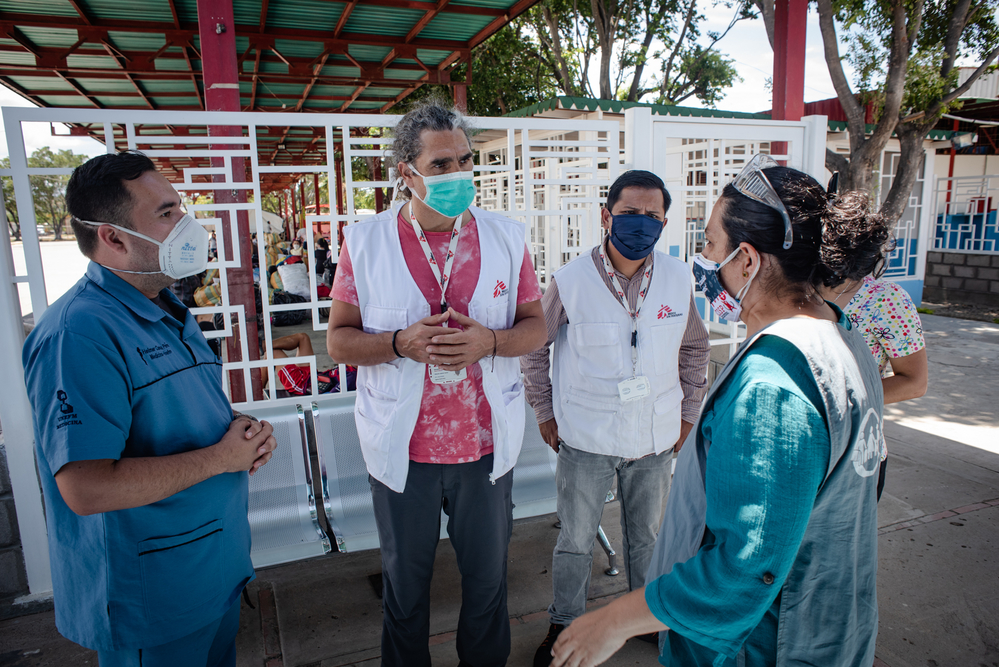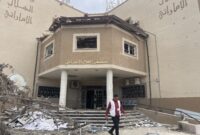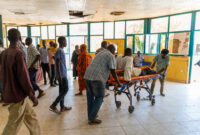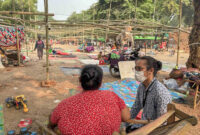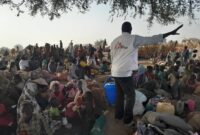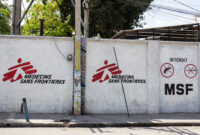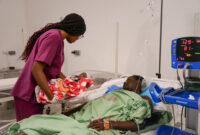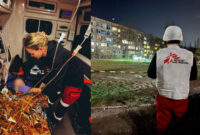Venezuela: MSF teams improve conditions in quarantine centres
Oswaldo Martinez is a 31-year-old Venezuelan who emigrated to Colombia when the economic situation in his own country left him struggling to support his wife and two children. With a heavy heart, he left his job selling onions and travelled to Peru, leaving his family in Venezuela. He had no luck finding a job in Peru, so made his way to Ecuador. After six fruitless months searching for work, and with COVID-19 spreading through Latin America, he decided to return home.
It was a long journey back to Venezuela. Oswaldo walked for weeks, relying for food, shelter and companionship on the goodwill of people he met along the way. When he arrived at the town of Cúcuta in Colombia, he made several attempts to cross the Simón Bolívar Bridge to Venezuela. As soon as he succeeded in crossing, he was tested for COVID-19 and put into quarantine – a system put in place by the authorities for Venezuelans returning to the country to prevent the spread of coronavirus.
Sitting in the centre where he is waiting out his quarantine, Oswaldo says: “I came back to Venezuela for my children – six months without a family and without work is too much to handle.”
COVID-19 halt to journey home
Most of the thousands of migrants returning to Venezuela arrive in the border state of Táchira, where the government has set up some 28 quarantine centres in former schools or sports halls. After undergoing a rapid test, returnees are grouped together based on whether their results are negative or positive. Once the quarantine period is over or they have recovered from the virus, people can finally continue their journey home.
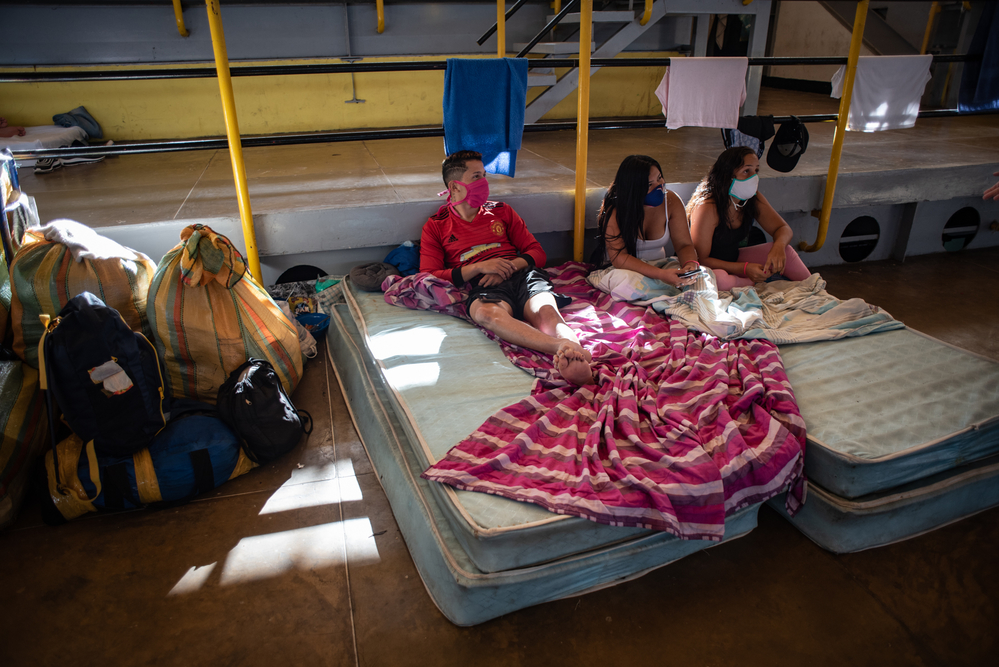
Teams from Doctors Without Borders/Médecins Sans Frontières (MSF), working with municipal and state authorities, are providing assistance to Venezuelan returnees in the quarantine centres, with a focus on water and sanitation, especially safe drinking water.
“One of the most frequent conditions seen by our medical teams in the quarantine centres was diarrhea, so we saw the need to improve hygiene conditions by making sure that safe drinking water was available,” says Verónica Pérez, a member of the MSF medical team in Táchira.
Focus on sanitation and hygiene
MSF has provided support at 16 quarantine centres across the state by installing systems for providing safe drinking water and by donating infection control materials, water disinfection tablets and meters to measure chlorine. MSF teams have also constructed showers and washing points, installed and fixed bathrooms, provided kitchen utensils for food preparation, trained staff in food handling and hygiene measures, and run health promotion days to promote good hygiene standards and prevent common diseases.
To pass the time, Oswaldo accompanies his friend Jefferson Hernández as he cuts people’s hair in the centre. A trained barber, 23-year-old Jefferson spent two months walking from Lima, the capital of Peru, back to Venezuela with his wife and one-year-old son. His two older children managed to cross the border two days earlier and are now quarantined in different centres. Jefferson is eager to leave the centre and be reunited with his family before actually returning home.
This year, many thousands of Venezuelans have crossed the border back to their home country. Until July, more than 90,000 Venezuelans returned through Colombia, according to a report by ‘Migración Colombia’, the Colombian government entity in charge of migration affairs.
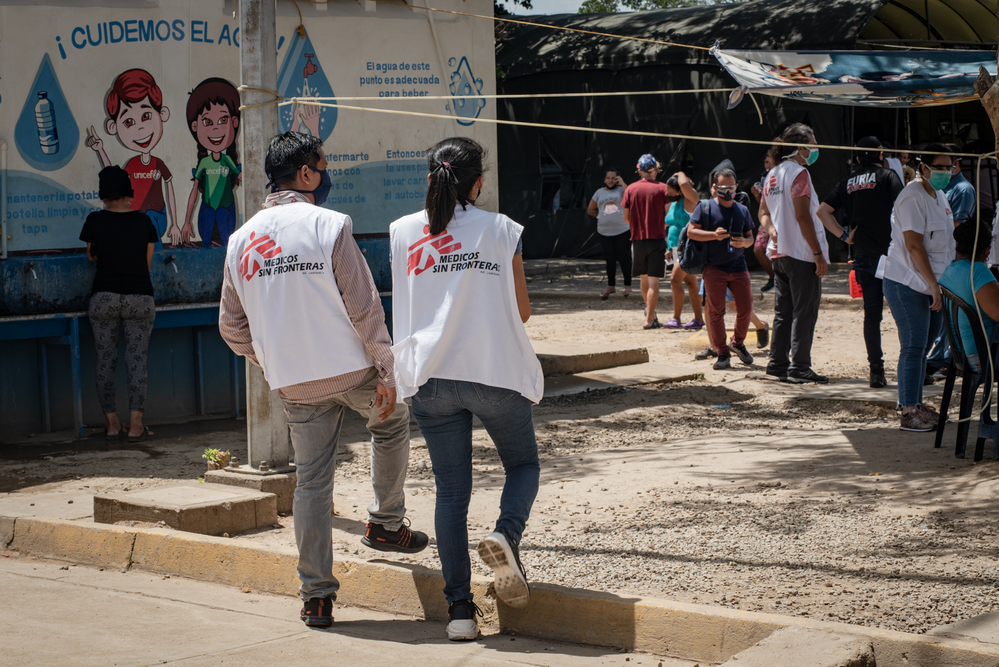
Most returnees have walked from other parts of Latin America, but there are as many stories as there are people. Cristian, 22, worked as a food delivery man in the Colombian capital, Bogotá, but lost his job as a result of the pandemic and made the journey home by bike. Daniela*, aged 14, set out on a two-month walk to follow his mother, who had left a few days earlier because of a death in the family. Deyanina, aged 26, lost her job as a manicurist in a hairdressing salon in the Colombian border city of Cúcuta due to the pandemic, prompting her to return home.
Cristian, Deinnys and Deyanina all crossed into Venezuela on the same day and, and after being tested for COVID-19, were taken to the ‘Futbol Sala’, a quarantine centre in a former sports complex in San Cristobal. After one week together, they feel almost like family, and soon they will set out together for home.
MSF in Venezuela
In Venezuela, MSF has adapted its operations in response to the COVID-19 emergency, with a focus on the most vulnerable groups of people attending MSF’s programs in the states of Anzoátegui, Amazonas, Bolívar, Sucre, Táchira, Miranda and the Capital district, who are under treatment for other diseases.
In Táchira state, MSF teams are providing assistance to Venezuelan returnees who have recently crossed the border from Colombia and have been quarantined as a preventive measure against COVID-19. To date, 9,350 Venezuelan returnees have benefited from our assistance.
MSF is an impartial, neutral and independent medical humanitarian organization that works in more than 70 countries around the world and has been working in Venezuela since 2015.
*Name has been changed to protect privacy.
